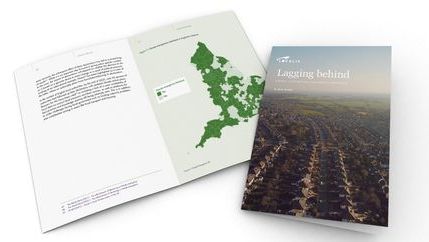
Tim Thomas, Policy and Campaigns Officer represented Propertymark showing our support to improve standards and energy efficiency across all housing tenures. However, more needs to be done to ensure that the decarbonisation of homes contributes towards the UK Government’s legal obligation to get to Net Zero by 2050.
Given the exponential increases in costs for labour and the shortage of some building materials, homeowners would need additional time to get up to standards alongside a suite of support including financial and tax incentives.
Propertymark put the case forward that the owner-occupied sector is very diverse, and a one size fits all approach would not work especially for existing homes in the sector. There should be a ‘do no damage’ policy for new builds as between October and December 2022, 84% of new builds in England and 87% of new builds in Wales were given an energy performance rating of A and B. These high standards need to be maintained.
Existing homes are more complex and would require several exemptions – like the regulations for MEES in the private rented sector. This could include an acknowledgement that for some houses to get to standard would require a significant cost. These homes, alongside other exemptions, include listed buildings or homes in conservation areas and should be exempt from the regulations.
Addressing regional variations in property values
Any policy would also have to address the differences in regional property value. In areas where property values are low, local authorities must support homeowners by providing ‘one-stop shops’ to support and advise homeowners on their needs, make use of local supply chains to achieve economies of scale and develop training opportunities. Local authority one-stop shops would allow local authorities to understand better the personal circumstances of homeowners in the area and better tailor engagement and awareness on retrofitting.
These arguments were a crucial part of Propertymark’s work alongside the National Residential Landlords Association (NRLA) and independent think-tank Localis to urge the UK Government to give serious consideration to the impact of regional variability in house prices and dwelling stock when installing heat pumps to hit decarbonisation targets. The work uncovered the fact that in some local authority areas of the North and Midlands, the estimated costs of improving home energy would be 25% of the property value compared to 2% of the property value in affluent parts of London and the Southeast.
Lagging behind: energy efficiency in low-viability properties
This report raises concerns over the affordability of retrofitting properties and highlights that residents in the North of England will be the hardest hit. Failure to factor in huge regional variations in property costs when incentivising homeowners and landlords to meet national net zero targets risks deepening economic inequality.
Grant funding opportunities
Propertymark also argued that for MEES to work in the owner-occupied sector, financial support in the form of grants and interest-free loans would be essential. This support should learn the lessons from the UK Government’s previous Green Homes Grant and reduce the restrictions and improve accessibility. Financial support is also heavily featured in our call for financial incentives for both homeowners and landlords in our recent Spring Budget Representation to HM Treasury.
Improving data and understanding
The UK Government should also use this opportunity to introduce Building Renovation Passports to improve data and understanding. This will enable homeowners to better understand what retrofit has taken place on their property and improve awareness of energy efficiency data. The passport could also include a digital logbook of renovation work alongside a retrofit roadmap to support homeowners understand what work is required to cost-effectively get up to standard.





